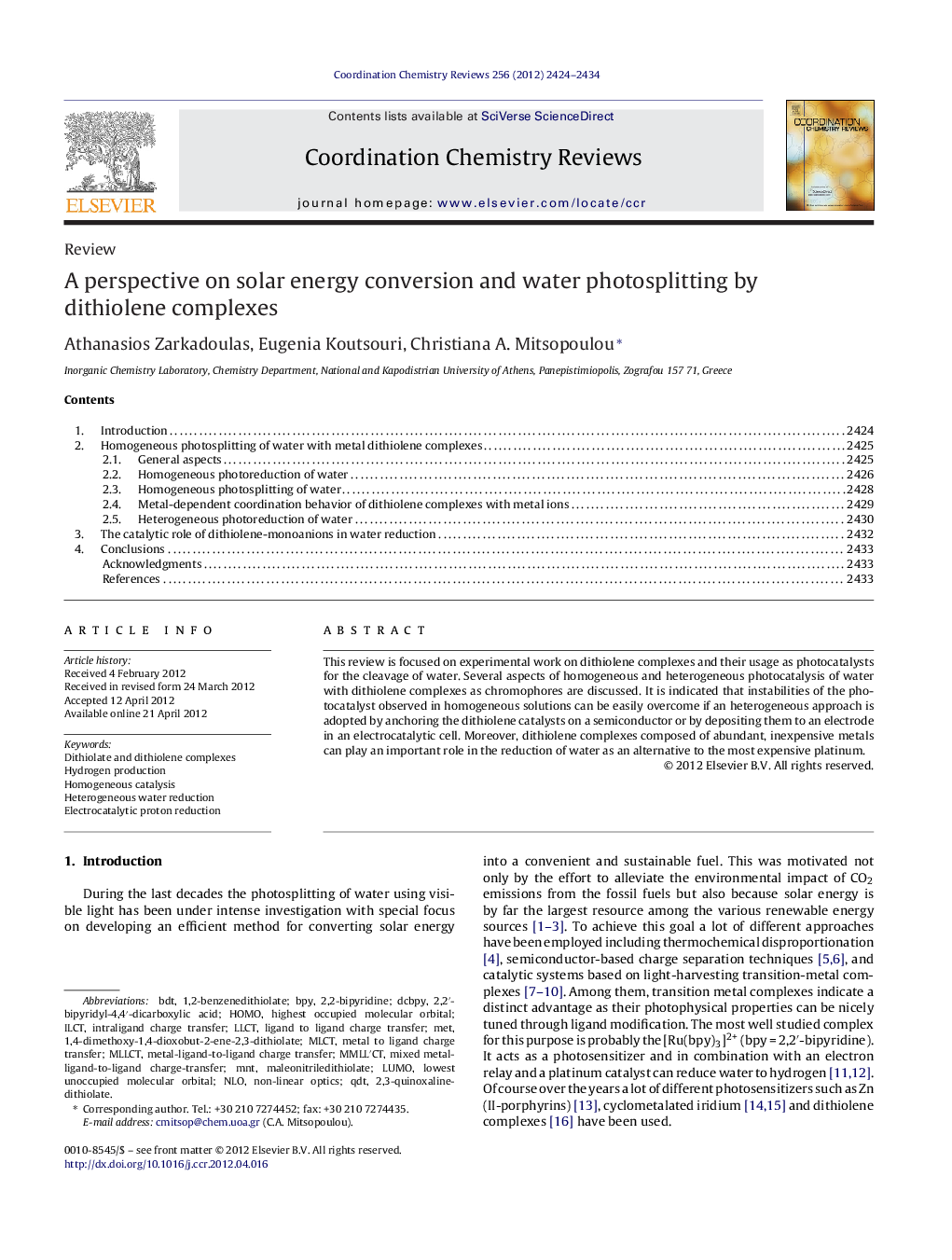| Article ID | Journal | Published Year | Pages | File Type |
|---|---|---|---|---|
| 1300135 | Coordination Chemistry Reviews | 2012 | 11 Pages |
This review is focused on experimental work on dithiolene complexes and their usage as photocatalysts for the cleavage of water. Several aspects of homogeneous and heterogeneous photocatalysis of water with dithiolene complexes as chromophores are discussed. It is indicated that instabilities of the photocatalyst observed in homogeneous solutions can be easily overcome if an heterogeneous approach is adopted by anchoring the dithiolene catalysts on a semiconductor or by depositing them to an electrode in an electrocatalytic cell. Moreover, dithiolene complexes composed of abundant, inexpensive metals can play an important role in the reduction of water as an alternative to the most expensive platinum.
Graphical abstractFigure optionsDownload full-size imageDownload high-quality image (162 K)Download as PowerPoint slideHighlights► Experimental work on photosplitting of water by dithiolene complexes is reported. ► The reasons of the observed instabilities are discussed. ► The superiority of heterogeneous photocatalysis for these systems is discussed.
